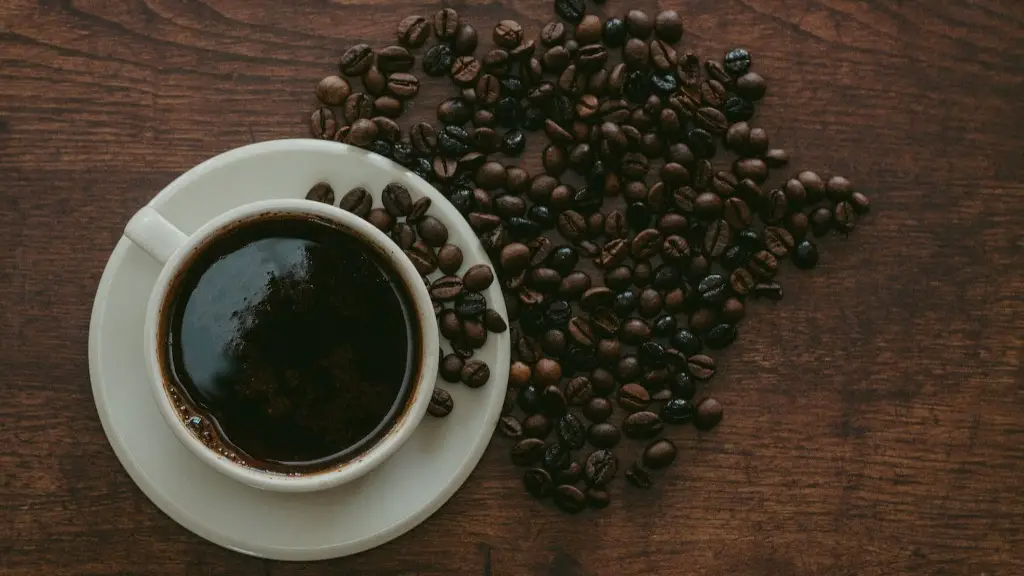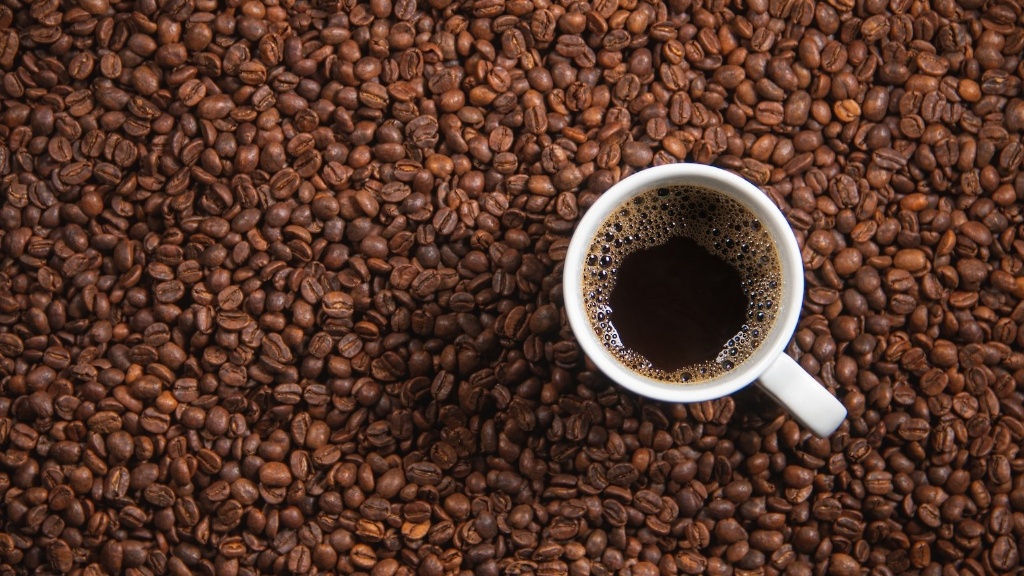Coffee and Diarrhea: What Does the Research Say?
When you’re experiencing diarrhea, the last thing on your mind is drinking a cup of coffee. But the question of whether or not that’s actually a good idea is hotly debated. Should you drink coffee with diarrhea, or is that idea over-caffeinated? To get to the bottom of this question and see what the experts have to say, let’s take a look at what the research shows.
Caffeine can have an effect on GI activity, and it is thought to speed up certain gut processes. However, the research is inconclusive on whether drinking coffee with diarrhea is beneficial or could further complicate stomach woes. Dr. Mary Ann Usher of the Mayo Clinic states, “Coffee and other caffeinated beverages, such as tea and energy drinks, can stimulate the body and speed up digestion, resulting in loose stools. However, some people might not be affected by caffeine and these beverages. Everyone is different.”
Studies on coffee consumption and its effects on the body are ongoing, and many people report that coffee has eased their diarrhea symptoms. But the efficacy of this anecdotal evidence remains unclear. One prevailing theory is that coffee may actually help the bacteria in your gut to grow, resulting in even looser stools than before.
If you do decide to drink coffee with diarrhea, it’s important to understand the potential effects it could have. Coffee is a diuretic, and consuming large amounts could lead to dehydration, especially since your body is already losing fluid due to loose stools. You should also avoid adding milk, as well as sugary creamers and syrups, which can make symptoms worse.
Dr. Usher recommends that if your diarrhea symptoms are severe, you should stay away from coffee and other caffeinated beverages. She warns, “Caffeinated beverages are not suitable for people with severe diarrhea, given their diuretic and laxative effects.”
At the end of the day, whether or not you should drink coffee with diarrhea is a personal decision. If you feel that coffee is helping, there is no evidence to suggest that you should stop drinking it. But if you’d rather not risk it, it’s best to stick to bland, non-caffeinated fluids like water, coconut water, and still or sparkling mineral water.
Coffee Sensitivity
If coffee does help ease your diarrhea symptoms, it’s possible that you may have a sensitivity to caffeine. Sensitivity to caffeine can manifest as any number of symptoms, including headaches, nausea, and diarrhea. If you’re sensitive to caffeine, even small amounts can prompt an increase in GI activity and lead to increased bouts of diarrhea.
Furthermore, if you’re sensitive to caffeine but still drink coffee regularly, there’s a chance you may be dealing with chronic gastrointestinal issues. It’s a good idea to keep a log of how much coffee you drink and if any GI symptoms coincide with your consumption. This can help you determine if you should try to avoid caffeine or lay off the coffee.
If you’ve already been diagnosed with GI issues and are still drinking coffee, it’s best to speak with your doctor or dietitian. They may be able to suggest products or treatments that can help ease your symptoms and minimize any potential side effects from drinking coffee.
Another option for avoiding potential GI issues from drinking coffee is to switch to decaf. Even though decaf coffees are still caffeinated to some degree, they will have significantly lower levels than regular coffee. In addition, you may find that the flavor of decaf is just as satisfactory as your usual blend.
What Are the Other Benefits and Risks of Drinking Coffee?
Even if you don’t have a sensitivity to caffeine, you should know that drinking coffee still comes with certain health implications and risks. In moderation, coffee may provide a boost of energy and improve concentration, but drinking too much may cause anxiety, insomnia, and problems with blood sugar regulation.
On the other hand, coffee has some beneficial properties as well. It contains a variety of nutrients and compounds, such as flavonoids, which can be beneficial to overall health. Some studies have even linked regular moderate coffee consumption with a lower risk of certain types of cancer.
Regardless of whether or not you’re dealing with GI issues, it’s important to regulate how much coffee you’re drinking and pay attention to how much caffeine you’re consuming. Most medical studies consider four cups of coffee or 400 mg of caffeine per day to be safe and acceptable.
Overall, whether you should or shouldn’t drink coffee while dealing with diarrhea all comes down to personal preference. If you like coffee, it’s possible it may provide some relief, but it’s not recommended to drink large amounts if you’re experiencing extreme GI symptoms.
What Other Beverages Can You Drink with Diarrhea?
If you’d rather avoid coffee during bouts of diarrhea, there are many other products and beverages available. Coconut water and still or sparkling mineral water can help hydrate and replenish lost fluids, and clear broths or soups are often tolerable for those experiencing diarrhea. You should also consider low-sugar electrolyte drinks, which may help replenish sodium and other essential minerals.
Herbal tea is another option that can potentially soothe diarrhea symptoms. Certain herbal teas, such as peppermint or ginger tea, may help reduce GI cramps, while other blends designed specifically to relieve stomach pains are becoming more popular.
It’s also important to stay away from carbonated drinks and acidic beverages, such as sodas, juices, and wines, as these can often aggravate the symptoms of diarrhea. Stick to simple, non-caffeinated fluids like water, clear broth, and unsweetened tea.
Overall, the key to dealing with diarrhea is to drink plenty of fluids and replenish lost electrolytes. You should also avoid any foods and drinks that may be difficult to digest, or that contain large amounts of sugar, caffeine, or artificial sweeteners.
Are There Any Home Remedies for Diarrhea?
If you’re looking to ease your diarrhea symptoms without resorting to medication, there are plenty of home remedies you can try. While none of these remedies carry the same scientific backing as a prescription drug, many people swear by some of these more natural solutions.
One popular remedy is apple cider vinegar. Just a few teaspoons of apple cider vinegar can rebalance the pH levels in your gut and reduce the frequency of diarrhea. Additionally, you can use ginger or peppermint tea to aid in digestion or try taking probiotic supplements to replenish the bacteria in your gut.
Another common solution is to add a spoonful of baking soda to a glass of water. This isn’t a long-term remedy for dealing with diarrhea, but this simple mixture can help neutralize the pH balance in your gut and can provide some temporary relief.
Essentially, if you’re dealing with diarrhea, it is important to stick to clear fluids, like water, coconut water, and still or sparkling mineral water. If you’re feeling adventurous, there are many home remedies available which may provide some relief. But of course, it’s always best to consult your doctor or a healthcare practitioner before trying any type of remedy.
Should I See a Doctor if I Have Diarrhea?
If your diarrhea lasts more than a couple of days, or if it’s accompanied by a fever, weight loss, or blood or mucus in the stool, it’s a good idea to call your doctor. Many gastrointestinal issues, such as irritable bowel syndrome (IBS) and Crohn’s disease, require medical attention and cannot simply be treated at home.
Severe cases of diarrhea can lead to dehydration, which can cause a variety of health problems, from headache to nausea and even confusion. If you are dizzy or weak, and especially if you’ve lost a significant amount of weight, you should seek medical help as soon as possible.
In addition, if you suspect you may have a food allergy or intolerance, it’s important to tell your doctor. A dietitian can help you identify hidden allergens in your diet and can come up with a plan to eliminate these items and produce lasting relief for your GI issues.
Overall, if you’re dealing with chronic diarrhea, or if symptoms suddenly worsen, it’s best to speak with your doctor and get an accurate diagnosis. With the help of your healthcare provider, you can work to resolve your GI issues and reduce the likelihood of future episodes of diarrhea.





